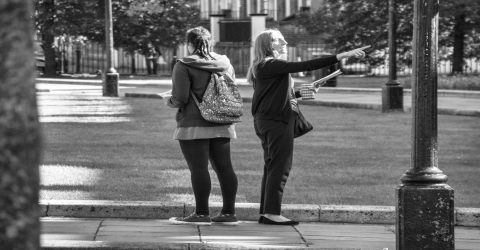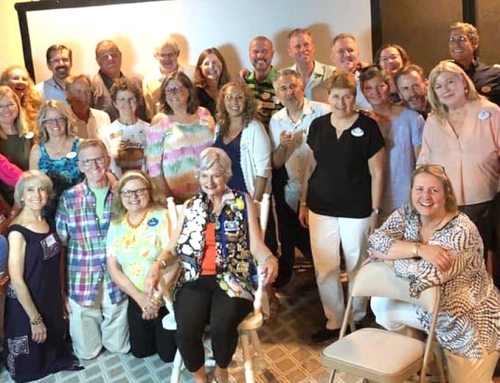 In 1995, I stood in the middle of a street in Paris, France completely overwhelmed. I was with some girlfriends and we were all excited to practice our super rusty high school French in real life. But when we arrived in Paris, it was as if we had landed in a completely different universe. Everything was in French. That sounds stupid, right? Because of course, everything was in French! And yet, we thought we’d be able to figure out the signs and the paperwork at the hotel with ease. But we struggled.
In 1995, I stood in the middle of a street in Paris, France completely overwhelmed. I was with some girlfriends and we were all excited to practice our super rusty high school French in real life. But when we arrived in Paris, it was as if we had landed in a completely different universe. Everything was in French. That sounds stupid, right? Because of course, everything was in French! And yet, we thought we’d be able to figure out the signs and the paperwork at the hotel with ease. But we struggled.
People were friendly and they helped us out when we asked for assistance, but it was frustrating. We knew a few words here and there but when we saw them strung together in a sentence, a street sign, or a brochure we just shrugged our shoulders and made our best guess. We felt lost. We needed a better understanding of the language.
I thought about this story today because, on this very day in 1799, the Rosetta Stone was discovered. It provided the key to understanding the ancient language of hieroglyphics.
If you’ve ever traveled to another country or a place where the language is different from your own, don’t you sometimes wish you had something like a Rosetta Stone? I know I did.
Patients probably also wish they had a Rosetta Stone when they have to make the best guess in medical situations. Especially when you consider all the terms, acronyms and jargon in healthcare. Just think about all the words you use on a daily basis without even thinking about it. They make your job easier and they probably make communication with colleagues easier and more efficient. But when you’re talking with patients, these things are what we call “graffiti” because they either distract or detract from the ideal patient experience. When you use these words, how can you be sure the patient is speaking your language?
The words we use every day are comfortable and familiar to us but for many patients, it can sound like a foreign language. And, it can leave them confused and uncertain about their own healthcare needs.
To the patient, what does it mean when a nurse tells a patient one of our partners will be in shortly to meet with you ? (What is a partner? An intern? A doctor? A specialist? A consultant? Or is it simply that hospital’s friendly, but unfamiliar, term for a doctor?)
To the patient, what does it mean when a doctor says OK then it looks like we’ll discharge you tomorrow (Doesn’t the term discharge have to do with fluids? Patients don’t necessarily know this means they will be going home.)
To the patient, what does it mean when the nurse says we’ll triage your son and call you when we’re ready (Is triage a medical procedure? Will it hurt my son? Or could it possibly mean we’ll quickly assess your son’s situation and then prioritize his treatment against others in the Emergency Room.)
As healthcare professionals, we have to commit to changing the way we speak to and with patients. The language we use must strive to always include, not exclude. It must intentionally engage, not alienate. And most importantly, it must reassure patients by engaging them as full participants in their own care – rather than make them feel like they need a Rosetta Stone to navigate their own care.






Leave A Comment